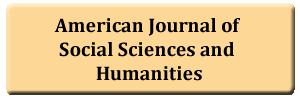Developing Undergraduates’ Ability to Manage any Situation in Life in Tanzania Selected Higher Education Institutions
DOI:
https://doi.org/10.20448/804.4.1.164.170Keywords:
Implemented instructional models, Managing any situation, Higher education, Elusive competence-based model, Elevated competence-based model.Abstract
The purpose of this study was to determine the development of the ability to manage any situation in life from implemented instructional models in Tanzania higher education institutions. The study adopted the longitudinal design. The study used a questionnaire to collect data in phase I and Phase II. Data were analysed using Yehs Index of Perception (YIP). A total of 183 student respondents participated in phase I and 70 respondents participated in phase II. Two institutions running undergraduate programmes using two different implemented instructional models, the Elusive Competence-Based Model (ECBM) in institution M2, and the Elevated Traditional Model (ETM) in institution D were included. The ECBM showed growth of the ability to manage any situation whereas the ETM showed deterioration. Respondents in institution M2 had low YIP scores in phase I and II; however, they had gradual improvement. In contrast, respondents in institution D had medium YIP scores in phase I and II; however, they showed deterioration although they remained with medium YIP score. Consequently, Tanzania studied higher education institutions graduates seem to complete the undergraduate education cycle without developing their ability to manage any situation in life beyond medium YIP score. This study concludes that the implemented instructional models do not develop the ability to manage any situation beyond Medium YIP score. To improve the YIP scores, the study recommends professors to find mechanisms that make students fully participate in whatever learning process strategy.



